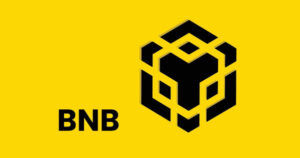The Tokenization Revolution: Redefining Financial Asset Management
By Jessie A. Ellis
Publication Date: Dec 14, 2024
At Extreme Investor Network, we are committed to bringing you cutting-edge insights on cryptocurrency and blockchain innovations. One of the most transformative developments in recent years is tokenization—an area that is reshaping how we manage financial assets. With the backing of recent insights from BNB Chain, let’s delve into what tokenization means for the future of finance and why it’s essential for investors looking to stay ahead.

Understanding Tokenization
Tokenization is a process that converts tangible and intangible assets into digital tokens on a blockchain. This groundbreaking method not only maintains the underlying asset’s value but also amplifies its accessibility and liquidity in the marketplace. According to BNB Chain, the global tokenization market is projected to skyrocket from approximately USD 3.53 billion in 2023 to USD 12.61 billion by 2030, indicating a whopping 20% compound annual growth rate (CAGR). This surge underlines the growing importance of tokenization in the modern economy.
Advantages of Tokenization in Financial Asset Management
Tokenization offers a multitude of advantages that enhance the traditional approaches to asset management:
-
Reduced Transaction Costs
By leveraging blockchain technology, tokenization minimizes reliance on intermediaries like banks and brokers, leading to significantly lower transaction fees and faster settlements. -
Enhanced Transparency
Transactions recorded on a public ledger enable independent verification and easy auditing, fostering a high level of accountability that builds trust among investors. -
Fractional Ownership
Tokenization democratizes investment opportunities by allowing high-value assets to be divided into smaller, tradable units, making them accessible to a broader range of investors. -
Speed and Efficiency
The near-instantaneous nature of blockchain transactions facilitates swift asset transfers, particularly advantageous for cross-border operations. - Security and Immutability
The encryptive features of blockchain provide a secure environment for transactions, ensuring that asset ownership is protected against tampering.
Real-World Use Cases of Tokenization
The transformative power of tokenization is being harnessed across various financial segments:
-
Bonds: Digital tokens representing bonds streamline their lifecycle, significantly improving liquidity while lowering counterparty risks. An excellent case is Matrixdock’s tokenization of U.S. Treasury Bills using the Binance Smart Chain.
-
Equities: Tokenizing shares enables seamless trading and fractional ownership, allowing for automated dividend distributions and 24/7 trading capabilities.
-
Commodities: Assets like gold and oil are being tokenized, which improves trading efficiencies by reducing settlement periods and increasing market transparency. For instance, Matrixdock has successfully tokenized LBMA-accredited gold.
- Investment Funds: Tokenization opens up new marketplaces for investment funds, as evidenced by KKR’s Health Care Strategic Growth Fund, utilizing Securitize for tokenized investments.
Conclusion: The Future is Tokenized
Tokenization is not just a trend; it is set to redefine financial asset management by enhancing accessibility, efficiency, and transparency. While the technology presents challenges for widespread adoption, solutions are rapidly evolving. BNB Chain, for instance, is at the forefront, providing innovative tokenization solutions that simplify the pathway for investors and institutions alike.
Stay tuned to Extreme Investor Network as we continue to explore the implications of tokenization and its exciting future in finance. For more insights, be sure to check out BNB Chain’s official blog!
At Extreme Investor Network, we believe in empowering our readers with knowledge that positions them ahead of the curve in the dynamic world of cryptocurrencies and blockchain technology. Join us as we navigate this revolution together!

